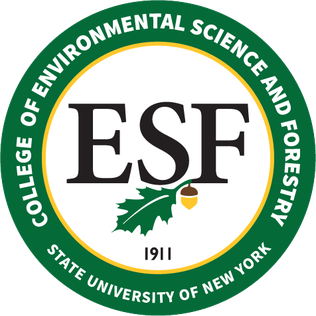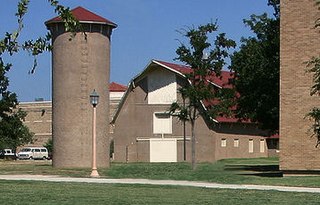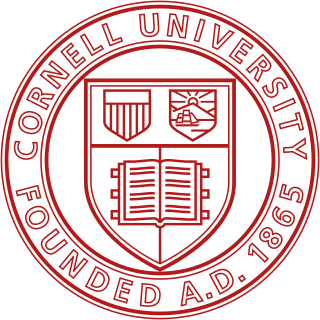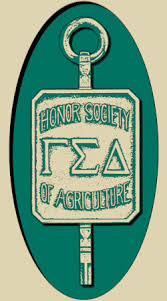This article needs additional citations for verification .(March 2016) |
The New World Agriculture and Ecology Group (NWAEG) is an organization focused on sustainable agriculture, conservation biology and social justice.
This article needs additional citations for verification .(March 2016) |
The New World Agriculture and Ecology Group (NWAEG) is an organization focused on sustainable agriculture, conservation biology and social justice.
Originally known as the New World Agriculture Group, NWAEG (pronounced "new-ag") became active in the 1980s. NWAEG drew inspiration from the 1970s-1980s Science for the People movement, and many of its founding members were active in Science for the People.
NWAG has a steering committee with representatives from three regions: East, Midwest, and West. [1] Additionally, a Nicaragua Coordinating Committee is also working.
NWAEG's best-known project was an intensive effort to provide agricultural research and extension services to the Nicaraguan people during the Sandinista era. Cuba and Chiapas, Mexico are locations of other NWAEG projects, exemplifying the group's informal focus on Latin America.
NWAG is collaborating with the National University (UNAN) and the Union of Small and Medium-sized Farmers (UNAG) in Nicaragua. The goal of Nicaraguan agriculturalists is to develop methods to reduce the use of chemical fertilizers and pesticides, which are both expensive and harmful to the environment. This initiative aims to increase food production and reduce dependency on foreign inputs. Several projects are underway, focusing on biological pest control through the use of natural predators and parasites.
NWAG scientists are spread across the United States, with the largest chapters located at Cornell University and the University of Michigan. There are also many active members in Vermont, North Carolina, California, Kentucky, Minnesota, throughout Canada, and in Nicaragua.

The Contras were the various U.S.-backed-and-funded right-wing rebel groups that were active from 1979 to 1990 in opposition to the Marxist Sandinista Junta of National Reconstruction Government in Nicaragua, which had come to power in 1979 following the Nicaraguan Revolution. Among the separate contra groups, the Nicaraguan Democratic Force (FDN) emerged as the largest by far. In 1987, virtually all Contra organizations were united, at least nominally, into the Nicaraguan Resistance.

Nicaragua, officially the Republic of Nicaragua, is the geographically largest country in Central America, comprising 130,370 km2 (50,340 sq mi). With a population of 6,850,540 as of 2021, it is the third-most populous country in Central America after Guatemala and Honduras. Nicaragua is bordered by Honduras to the north, the Caribbean Sea to the east, Costa Rica to the south, and the Pacific Ocean and a shared maritime border with El Salvador to the west. The country's largest city and national capital is Managua, the fourth-largest city in Central America with a population of 1,055,247 as of 2020. Nicaragua's multiethnic population includes people of mestizo, indigenous, European, and African heritage. The country's most spoken language is Spanish, though indigenous tribes on the Mosquito Coast speak their own languages and English.

The Sandinista National Liberation Front is a socialist political party in Nicaragua. Its members are called Sandinistas in both English and Spanish. The party is named after Augusto César Sandino, who led the Nicaraguan resistance against the United States occupation of Nicaragua in the 1930s.

The State University of New York College of Environmental Science and Forestry (ESF) is a public research university in Syracuse, New York focused on the environment and natural resources. It is part of the State University of New York (SUNY) system. ESF is immediately adjacent to Syracuse University, within which it was founded, and with which it maintains a special relationship. It is classified among "R2: Doctoral Universities – High research activity".

The Nicaraguan Revolution encompassed the rising opposition to the Somoza dictatorship in the 1960s and 1970s, the campaign led by the Sandinista National Liberation Front (FSLN) to oust the dictatorship in 1978–79, the subsequent efforts of the FSLN to govern Nicaragua from 1979 to 1990, and the Contra War, which was waged between the FSLN-led government of Nicaragua and the United States–backed Contras from 1981 to 1990. The revolution marked a significant period in the history of Nicaragua and revealed the country as one of the major proxy war battlegrounds of the Cold War, attracting much international attention.

Phi Sigma Kappa (ΦΣΚ), colloquially known as Phi Sig or PSK, is a men's social and academic fraternity with approximately 74 active chapters and provisional chapters in North America. Most of its first two dozen chapters were granted to schools in New England, New York, and Pennsylvania; therefore its early development was strongly Eastern in character, eventually operating chapters at six of the eight Ivy League schools as well as more egalitarian state schools. It later expanded to the South and West. The fraternity has initiated more than 180,000 members since 1873.

The World League for Freedom and Democracy (WLFD) is an international non-governmental organization of anti-communist politicians and groups. It was founded in 1952 as the World Anti-Communist League (WACL) under the initiative of Chiang Kai-shek, leader of the Republic of China and retired General Charles A. Willoughby that united mostly right-wing authoritarian people and organizations, and acted with the support of the right-wing authoritarian regimes of East Asia and Latin America. During the Cold War, WACL actively participated in anti-communist and anti-Soviet positions.

Edwin Garrigues (Garry) Boring was an American experimental psychologist, Professor of Psychology at Clark University and at Harvard University, who later became one of the first historians of psychology. A Review of General Psychology survey, published in 2002, ranked Boring as the 93rd most cited psychologist of the 20th century, tied with John Dewey, Amos Tversky, and Wilhelm Wundt.

Agricultural education is the systematic and organized teaching, instruction and training available to students, farmers or individuals interested in the science, business and technology of agriculture as well as the management of land, environment and natural resources.

The history of Cornell University begins when its two founders, Andrew Dickson White of Syracuse and Ezra Cornell of Ithaca, met in the New York State Senate in January 1864. Together, they established Cornell University in Ithaca, New York, in 1865. The university was initially funded by Ezra Cornell's $400,000 endowment and by New York's 989,920-acre (4,006.1 km2) allotment of the Morrill Land Grant Act of 1862.
Science for the People (SftP) is an organization that emerged from the antiwar culture of the United States in the late 1960s. Since 2014 it has experienced a revival focusing primarily on the dual nature of science. The organization advocates for a scientific establishment that is not isolated from society, rather one that uses scientific discoveries to advocate for and advance social justice and critically approach science as a social endeavor.

Cornell University is a private Ivy League land-grant research university based in Ithaca, New York. The university was founded in 1865 by Ezra Cornell and Andrew Dickson White. Since its founding, Cornell has been a co-educational and nonsectarian institution. As of fall 2023, the student body included over 16,000 undergraduate and 10,000 graduate students from all 50 U.S. states and 130 countries.
The Thomas Merton Center is a non-profit grassroots organization in Pittsburgh whose mission to build and support collaborative movements that empower marginalized populations to advance collective liberation from oppressive systems.
The term Engineers Without Borders is used by a number of non-governmental organizations in various countries to describe their activity based on engineering and oriented to international development work. All of these groups work worldwide to serve the needs of disadvantaged communities and people through engineering projects. Many EWB national groups are developed independently from each other, and so they are not all formally affiliated with each other, and their level of collaboration and organizational development varies. The majority of the EWB/ISF organizations are strongly linked to academia and to students, with many of them being student-led.
Norman Uphoff is an American social scientist now involved with agroecology serving as a Professor of Government and International Agriculture at Cornell University. He is the acting director of the Cornell Institute for Public Affairs and former director of the Cornell International Institute for Food, Agriculture, and Development (CIIFAD) 1990–2005.
Sandy (Alexandra) Pollack (1948–1985) was an American Communist activist. She is best known for her involvement in the founding of the Committee in Solidarity with the People of El Salvador (CISPES), which was the focus of two highly controversial FBI investigations. One addressed possible violations of the Foreign Agents Registration Act (FARA), in which her personal contact with Farid Handal, brother of Salvadoran Communist leader Shafik, was called into question. The other concerned alleged tangible support of terrorist activities perpetrated by or on behalf of the Frente Farabundo Martí para la Liberación Nacional, FMLN and Frente Democrático Revolucionario FDR under the guise of international solidarity. The first case was dropped for lack of evidence. She was killed in a plane crash before the second case was settled.
Esi Awuah is a Ghanaian academic and former vice chancellor of the University of Energy and Natural Resources in Sunyani, Ghana.

Gamma Sigma Delta (ΓΣΔ), or more fully, the Honor Society of Agriculture, Gamma Sigma Delta, is an international honor society for agriculture students and those in related fields. Founded in 1913, it is the oldest and largest such society for its academic discipline, which also includes Delta Tau Alpha, founded in 1960.
Ann E. Hajek is an American entomologist with a focus in insect-microbe interactions. She was a professor of entomology at Cornell University from 1994 to 2024.